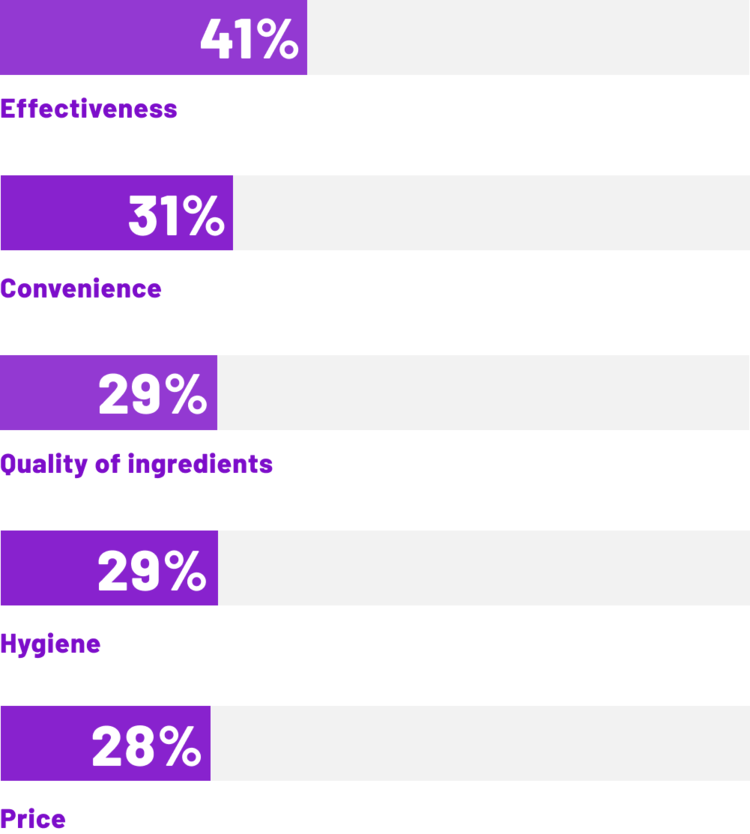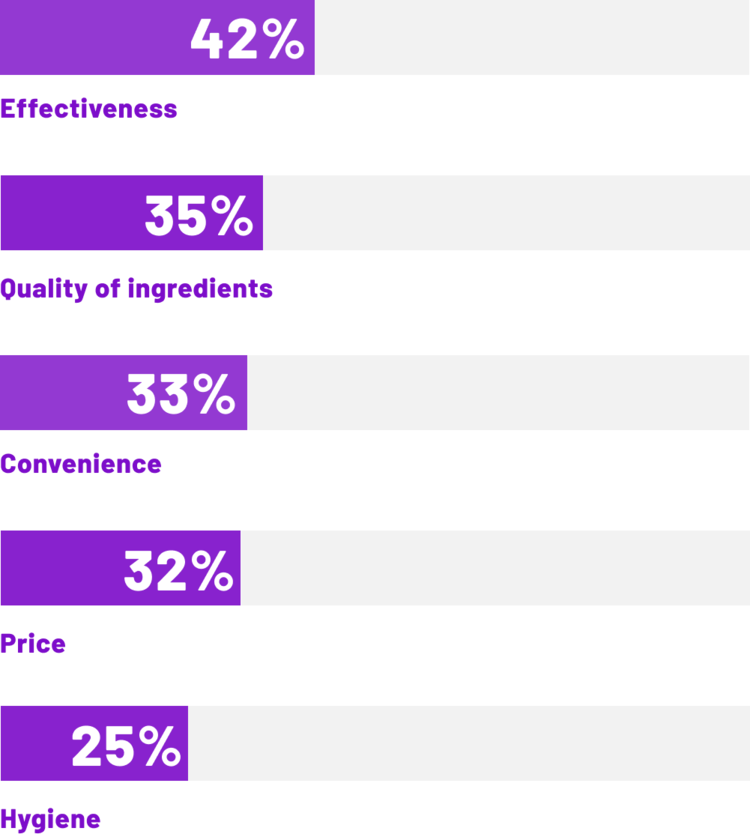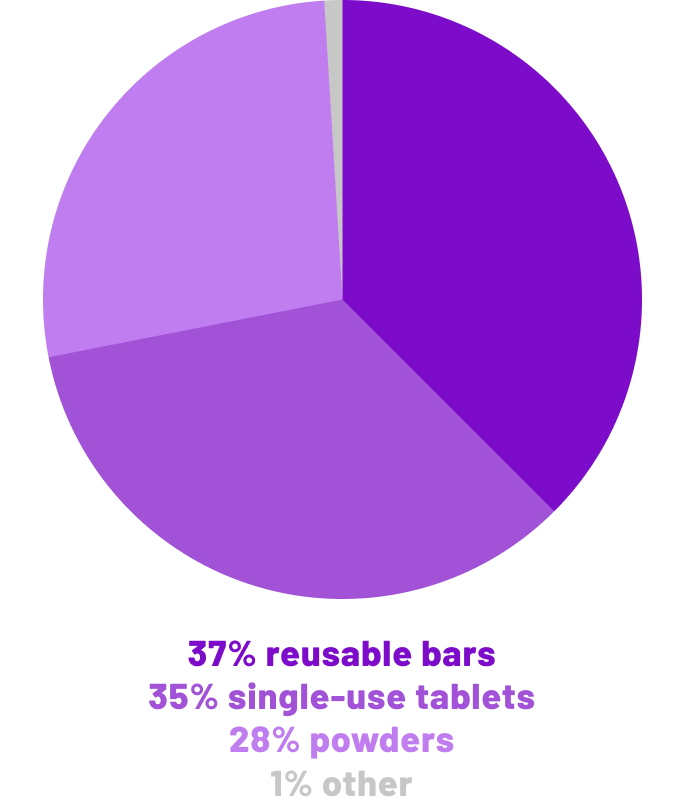Liquid-Free Cleansers: The Future of Sustainable Shopping?
• • • • • •
Consumers might be ready to move on from plastic product containers
Over the past few decades, consumers and manufacturers alike have forgone the traditional bar of soap in favor of liquid cleaners, packaged in plastic containers that are meant to be thrown away after use. But the convenience and disposability of these products comes with a price. Single-use plastic currently accounts for half of the 300 million tons of plastic produced every year – 8 million tons of which ultimately ends up in the ocean. And as the Plastic Pollution Coalition recently reported, the U.S. can no longer export as much of its plastic waste to other countries, so the national recycling rate is actually expected to drop in 2019,
To combat this, some ecologically-minded companies are moving away from liquid-based products, not just in the realm of personal care but for household cleaning supplies as well. At the end of 2018, even Procter and Gamble announced plans to roll out a new liquid-free brand, “DS3,” that will specialize in single-use, water-activated swatches of everything from shampoo to toilet bowl cleaner.
It’s clear that there are plenty of potential benefits to a rise in liquid-free cleansers – in addition to a reduced dependence on oil-based methods of production, these types of products also tend to be easier to ship and store than oddly-shaped bottles and jars. But after years of being told by manufacturers that liquid soaps are more hygienic or easier to use, how likely is it that consumers will reverse their current buying behavior?
What We Found
Suzy™ went to our panel of over 1 million consumers to gauge their familiarity with liquid-free cleaning products; 3,000 were asked about personal care products, and 3,000 were asked about household cleaning products. Altogether, most of them had not only heard of these products before, but claim to use liquid-free products themselves.
What is your familiarity with liquid-free and/or solid…
personal care products?
household cleaning products?
We then retargeted those who use liquid-free products and asked them to select the three biggest factors that made them choose. Across the board, the majority of respondents said that product effectiveness was the most important factor in why they chose the products they did. And despite the fact that many ethically green companies tout solid cleaning products as the answer to curbing plastic pollution, environmental concerns didn’t even break the top five reasons that most consumers choose to purchase these kinds of products.
Why do you prefer liquid-free and/or solid...
personal care products?
household cleaning products?
Even more interestingly, when we retargeted the consumers who don’t use liquid-free products to ask them why they prefer liquid products instead, their number-one reason was the same: product effectiveness.
Why do you prefer liquid...
personal care products?
household cleaning products?
So what factors would make someone switch from liquid products to solid ones? In the realm of personal care, respondents said that they would consider buying liquid-free personal care products if they were more convenient to use; but for household cleaning supplies, they wished that solid products were more effective – implying that many people don’t currently think that they are effective in the first place.
Finally, we asked respondents who favored liquid products to choose which types of solid products they’d be most likely to use instead. 37% of the people asked about personal care products said they’d considered switching to reusable bars, whereas 40% of those asked about household cleaners would prefer single-use tablets like the ones Procter and Gamble has developed for their DS3 brand.
What kind of liquid-free products would you consider buying?
Personal Care
Household Cleaning
Suzy™ Says…
Regardless of what kind of personal care or cleaning products consumers buy, they want to believe that they’re using the most effective products on the market – which means that other considerations, like how much waste it generates to make, are generally secondary. Brands like DS3 need to make sure that their cleaning supplies work well enough to compete with what’s currently on store shelves, and should not rely on the environmental consciousness or storage concerns that their target audience might also have in order to market their products.
......
Are you someone who works with consumable packaged goods (CPG)? Contact us for a demo.









